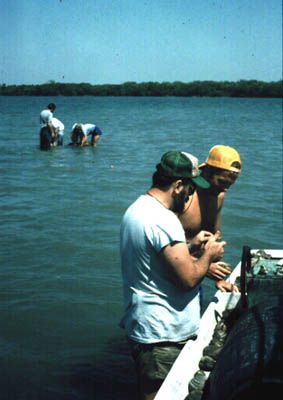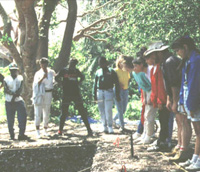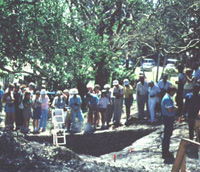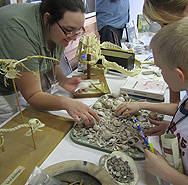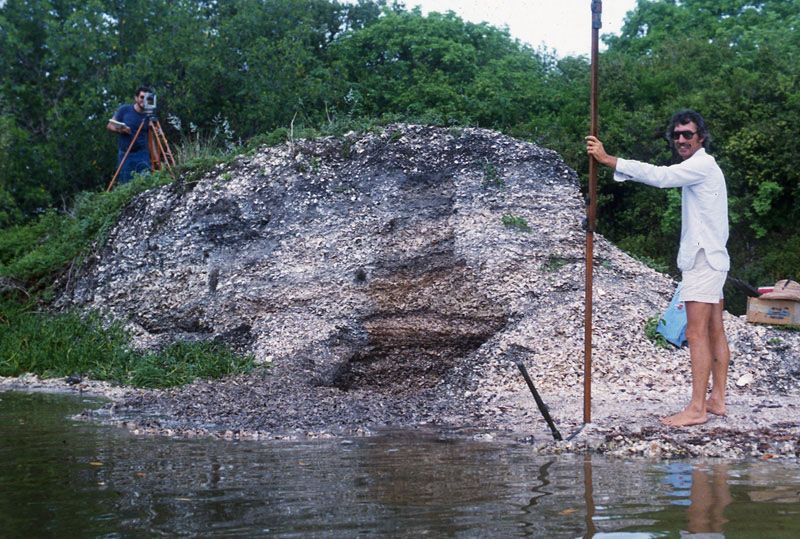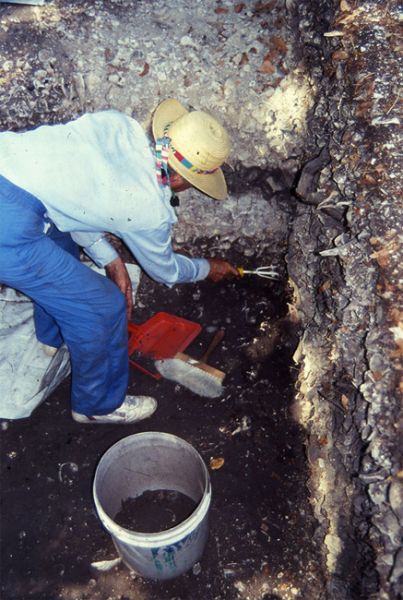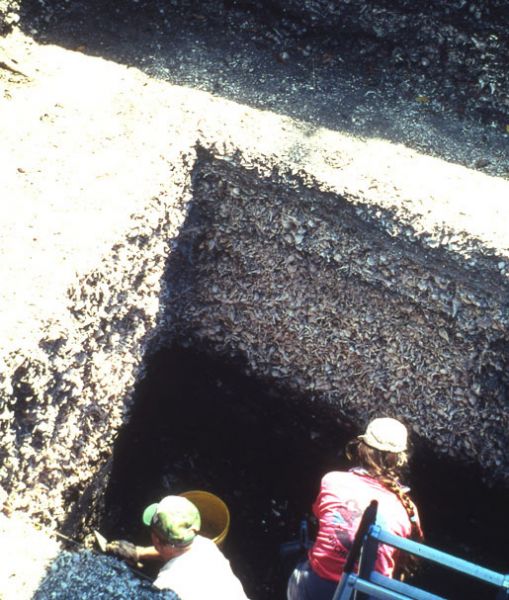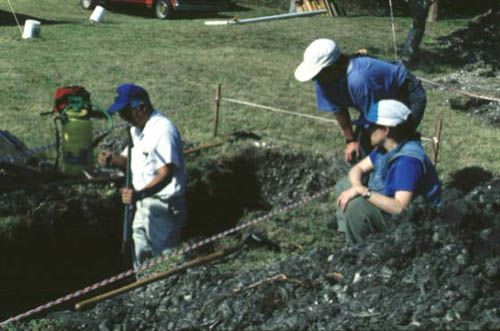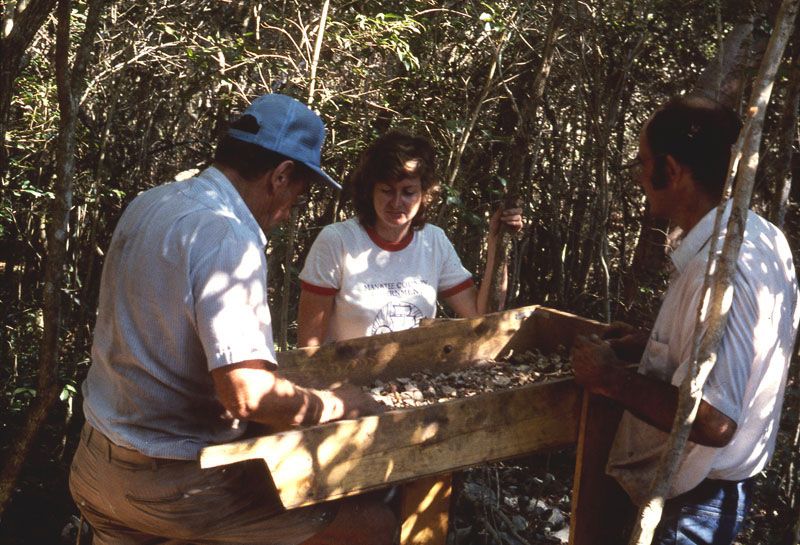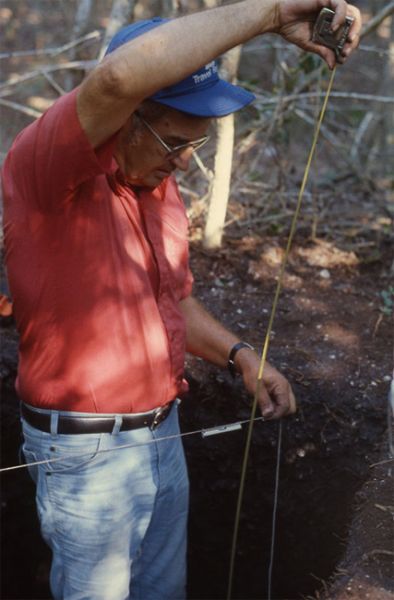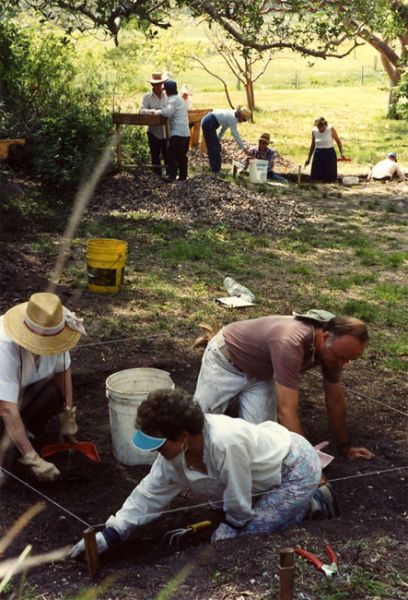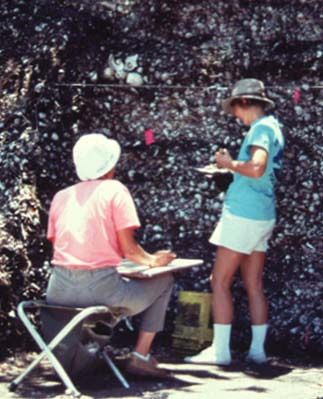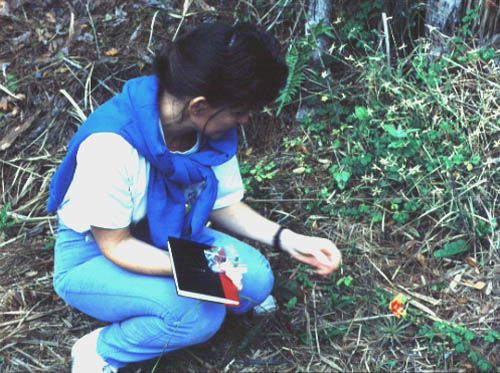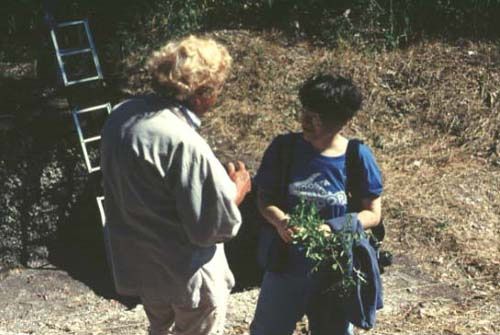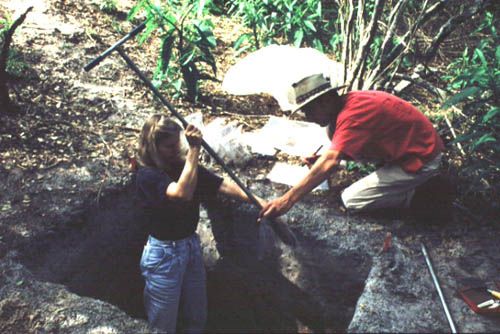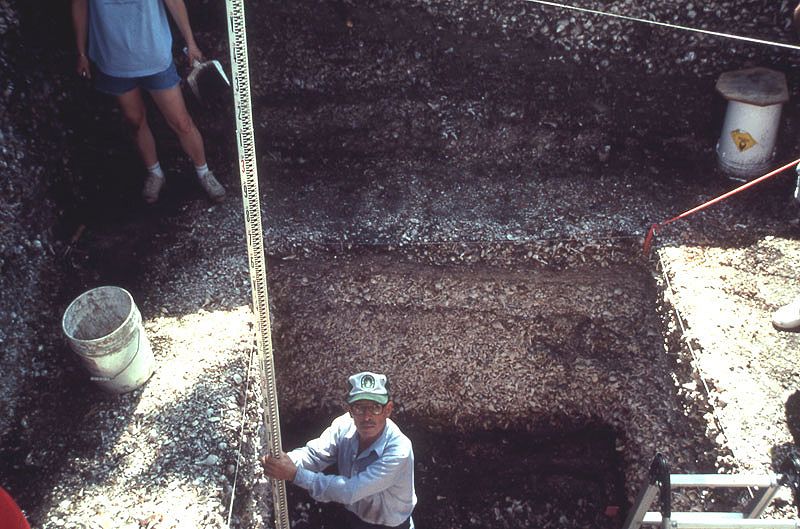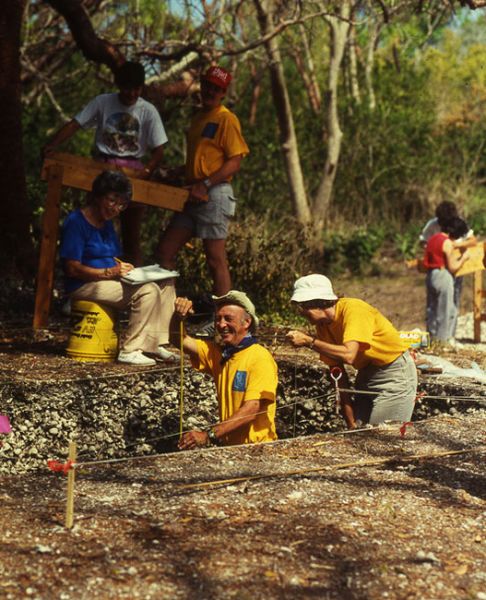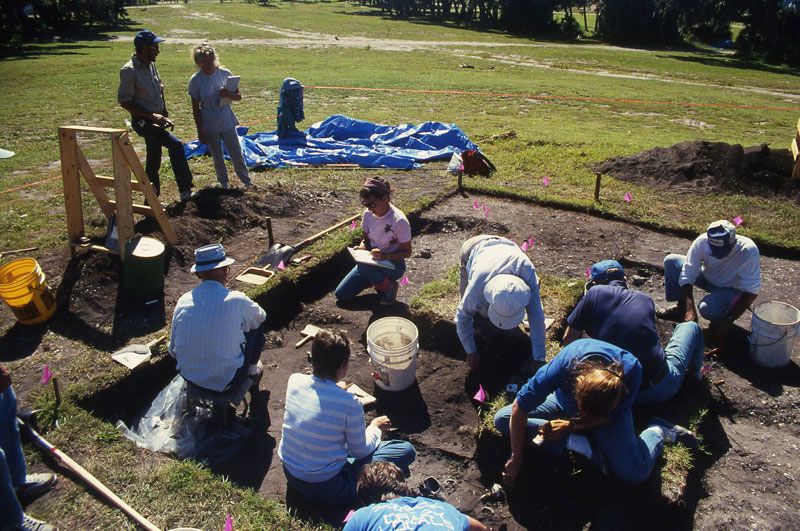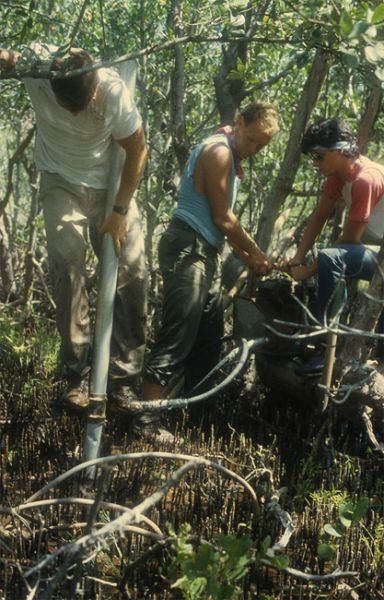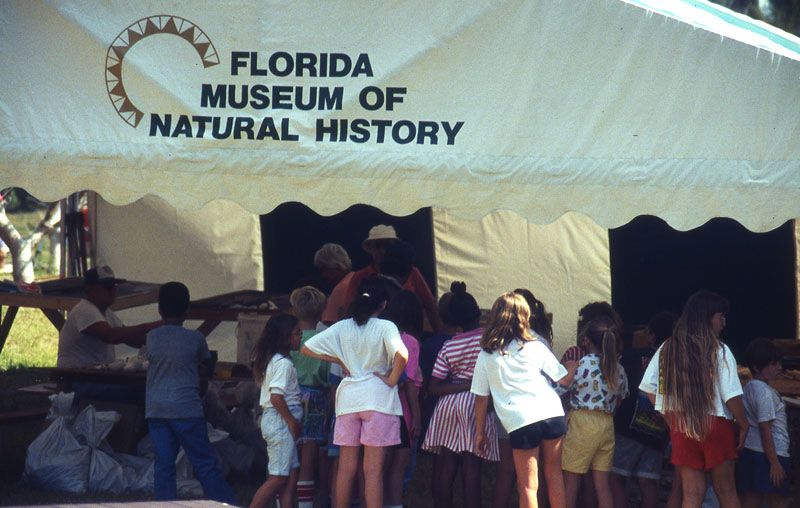Established in 1983, the South Florida Archaeology Program has resulted in the most systematically obtained and extensively studied collection from the domain of the Calusa Indian people of southwest Florida.
Curator Emeritus William H. Marquardt and retired collections manager Karen J. Walker developed an interdisciplinary program employing documentary, archaeological, and environmental data to understand human cultural practices across southwest Florida and the surrounding regions before, during, and after European contact.
The work of Marquardt, Walker, and their countless collaborators teased apart the emergence of social and political complexity in southwest Florida through a historical ecology framework and set the bar for interdisciplinary research on long-term anthropogenic impacts on biodiversity. Their work has been supported by the National Endowment for the Humanities, the National Science Foundation, the Ruth and Vernon Foundation, the Knight Foundation, the Maple Hill Foundation, three Special Category grants from the Florida Department of State, and the monetary and volunteer labor contributions by hundreds of people.
Extensive fieldwork in southwest Florida has included investigations at Josslyn Island, Buck Key, Galt Island, Cash Mound, Horr’s Island, Useppa Island, Mound Key, and the Pineland Site Complex on Pine Island, Calusa Island, Upper Matecumbe Key, and Key Largo. The results of these studies have been reported in books, monographs, articles, videos, academic theses, and dissertations. You may also visit the Randell Research Center on Pine Island to find history incorporated into the Calusa Heritage Trail and at the South Florida People and Environments exhibit at the Florida Museum of Natural History exhibit’s center in Gainesville.
Bridging Ethnohistory and Oral History
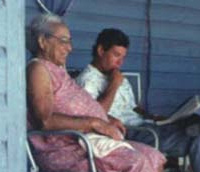
Ethnohistory is an interdisciplinary field of study that combines elements of anthropology, history, and ethnography to explore and understand the historical events, practices, and perspectives of specific ethnic or cultural groups. The South Florida Archaeology program conducted various research projects using these interdisciplinary methods to investigate the complex history of southwest Florida.
Missions to the Calusa, is the product of archival research by John Worth from colonial archives housed in Spain and Cuba. This compendium of documents was translated and annotated by John Hann and contains a wealth of information about the historic Calusa previously unknown or largely inaccessible to the public.
Fisherfolk of Charlotte Harbor, Florida, by Robert Edic explores early twentieth century fishing traditions and cultural changes through oral histories and in southwest Florida.
Local Community Impacts Through Public Outreach and Service
In 1989 Marquardt teamed up with the Lee County School System, Nature Center of Lee County (now the Calusa Nature Center), and the Fort Myers Historical Museum (now Southwest Florida History Museum) for a multi-component project called, “The Year of the Indian.” Through three extensive archaeological field seasons with over 25,000 hours of volunteer assistance, a series of broader impacts were implemented in the greater region.
These broader impacts included two local museum exhibits, a summer program for children, a speaker series, teacher trainings, and curriculum development. With funding from the National Endowment for the Humanities several books were produced including New Words, Old Songs, a story about native Southwestern Floridians; Fisherfolk of Charlotte Harbor, Florida, an oral history of southwest Florida’s senior fisherfolk and net-fishing tradition; The Archaeology of Useppa Island, documenting the historical and oral history of the island; and The Archaeology of Pineland: A Southwest Florida Coastal Site Complex, A.D. 50-1710, which is a detailed compendium of archaeological and historical information about the Pineland Site Complex. Furthermore, a video, The Domain of the Calusa: Archaeology and Adventure in the Discovery of South Florida’s Past, won the “Best Documentary” award at the eighth annual Film and Video Awards program of the Louis Wolfson II Media History Center.
